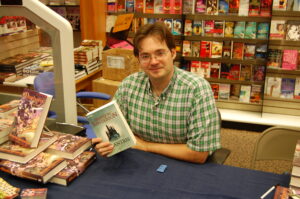 Beware the Ides of March. Originally the Ides of March (March 15th) had no ominous connotation, but referred to the beginning of March and a new year. Thanks to Shakespeare it is now an ominous warning. Do you have any superstitions that affect your reading or writing? A time or a place? Certain clothing? Is the superstition positive or negative?
Beware the Ides of March. Originally the Ides of March (March 15th) had no ominous connotation, but referred to the beginning of March and a new year. Thanks to Shakespeare it is now an ominous warning. Do you have any superstitions that affect your reading or writing? A time or a place? Certain clothing? Is the superstition positive or negative?
Monthly Archives: March 2022
The Fine Art of Editing
 By Elaine Viets
By Elaine Viets
Here’s one reason why I like my London publisher, Severn House: Editing.
Like most writers, I try to turn in clean copy. I’m also an editor myself. So I appreciate the masterful way Severn House edited my latest Angela Richman mystery, Late for His Own Funeral, due out in the US this November. The editors took care to fine-tune the sentences with small but significant changes.
Take a look at these. The way I wrote the selection is first. The edited version is second.
(1) In this first example, Angela is recalling her friend’s doomed married. The change helps set the scene.
Elaine: Back then, Sterling had seemed awed by Camilla’s cool elegance, and she fell in love with his humor and energy.
Severn House: When they first met, Sterling had seemed awed by Camilla’s cool elegance, and she fell in love with his humor and energy.
 (2) Elaine: I walked over to him and looked right into his red eyes. We were both the same height.
(2) Elaine: I walked over to him and looked right into his red eyes. We were both the same height.
Severn House: I walked over to him and looked right into his red eyes. We were the same height.
This change gets rid of a redundancy. If Angela could look the man in the eyes, then they were the same height. I didn’t need that “both.”
 (3) Elaine: The cut on her forehead had been stitched. She’d have a heck of a bruise there tomorrow.
(3) Elaine: The cut on her forehead had been stitched. She’d have a heck of a bruise there tomorrow.
Severn House: The cut on her forehead had been stitched. She’d have a heck of a bruise there.
I didn’t need that “tomorrow.”
(4) This change makes the sentence sing.
Elaine: The child wore a pink polka-dot T-shirt and jeans, and had pink ribbons in her hair.
My editor rearranged it as:
Severn House: The child wore jeans and a pink polka-dot T-shirt, and had pink ribbons in her hair.
(5) Here’s a shorter way of saying the same thing:
Elaine: We were at my car now.
Severn House: We reached my car.
 (6) Elaine: I fired up my iPad and opened up the Death Scene Investigation form.
(6) Elaine: I fired up my iPad and opened up the Death Scene Investigation form.
Severn House: I fired up my iPad and opened the Death Scene Investigation form.
No need for that second “up.”
(7) Another unnecessary phrase bites the dust:
Elaine: “It’s going to be rough for a bit,” I said. “But you’ll get through it. I promise. You have a real advantage – one of the best lawyers in the Midwest.”
With that, Mrs. Ellis entered the room carrying a tray. “I’ve brought you some food, Camilla dear.”
Severn House: “It’s going to be rough for a bit,” I said. “But you’ll get through it. I promise. You have a real advantage – one of the best lawyers in the Midwest.”
Mrs. Ellis entered the room carrying a tray. “I’ve brought you some food, Camilla dear.”
(8) This small change makes for a cleaner sentence.
Elaine: I was on duty at midnight tonight, so I packed a small overnight bag with my DI uniform and added my office cell phone charger.
Severn House: I was on duty at midnight, so I packed a small overnight bag with my DI uniform and added my office cell phone charger.
(9) Elaine: Millie watched fascinated while the server mixed the ingredients together in a large glass bowl, then added the dressing and tossed the salad.
Severn House: Millie watched fascinated while the server mixed the ingredients in a large glass bowl, then added the dressing and tossed the salad.
If the ingredients were mixed in a bowl, naturally they’d be “together.”
(10) Here’s another two-letter change:
Elaine: Linda’s apartment, 615, was in the middle of the hall. I could hear the TV on and hoped Linda was home.
No need for that “on.” If I could hear the TV, it was definitely on.
(11) One last one-word change.
Elaine: I went home to my place, feeling discouraged. Chris and I didn’t have a fight. I just wanted to be alone tonight.
Severn House: I went home to my place, feeling discouraged. Chris and I didn’t have a fight. I just wanted to be alone
Most of these changes were small and subtle. Also, I don’t have to accept any that I don’t like. Some got lost in translation when they crossed the Atlantic. Like this one:
Angela says: “I was a bridesmaid in her wedding ten years ago, and we marched down the same aisle now blocked by her husband’s casket.”
The copyeditor had changed it to: “I was a bridesmaid ‘at’ her wedding.” I had to explain that if you’re “at a wedding” you’re attending it, while if you’re “in a wedding,” you’re an attendant.
Sometimes we truly are two countries divided by a common language.
 Now hear this: My Dead-End Job mysteries Murder with Reservations, Clubbed
Now hear this: My Dead-End Job mysteries Murder with Reservations, Clubbed
to Death, Murder Unleashed and Killer Cuts are now on Scribd.com. Listen to them during your 30-day free trial.
Owning the Stage
This past weekend, I had the honor of judging the state finals of a national oratorical competition for high schoolers. First of all, cudos to the students–one of them only a 9th grader!–for showing the courage to step before their colleagues, families and us judges to deliver their presentations.
The format required each contestant to deliver a memorized presentation that could be no shorter than eight minutes, and not a second longer than ten minutes. To fall short or run long triggered penalty points. No applause was allowed. No notes, either.
After all of the prepared presentations were finished and scored, each contestant was allowed exactly five minutes to prepare remarks on a topic chosen out of a hat, and then deliver a speech that could be no shorter than three minutes nor longer than five minutes. Again, steep penalties awaited anyone whose remarks fell outside the timed guidelines. The assigned topics were chosen from a list of possible choices of which the contestants were all aware, all of which dealt with some element of the U.S. Constitution. So, they weren’t entirely blind-sided, but they had no idea which one they’d be hit with.
As an aside, I had good success on the debate and forensics teams when I was in high school–back when “public speaking” was the only definition I knew for the word, forensics. I cannot imagine the pressure these kids were under, and I applaud each of them for hanging in there–even during those horrific moments when they lost their place in their speech and the room full of adults bled silently for them while pretending not to notice.
As a judge, of course, I had to notice. I only regret that there was no opportunity to speak to the contestants afterward, and maybe provide some points they could work on. Instead, all they will see is their numerical scores.
We haven’t discussed public speaking much recently in the Killzone Blog . . .
Now that the world is pulling out of pandemic panic–at least my corner of it is–I think the time is near when we will once again speak to people’s eyes instead of just a webcam, I thought it might be a good time to share some of my observations on speaking essentials. Here goes:
Be prepared but don’t overcook.
Professionals–even the ones who don’t get paid–owe it to themselves and their audiences to know what they’re going to talk about before they start. If the presentation is a factual one–driven by statistics and such–it behooves the speaker to have that stuff down flat–or to have quick access to a cheat sheet.
I witnessed a couple of vapor-locks among the student contestants yesterday, and in each case, it was clear to me that the issues were not their problem, but rather that they had forgotten the order of the words they had memorized. In each case, even when they were on track, they were so intent on getting the lyrics of the speech right that they forgot that the audience was there to hear the music, too. They want to watch the speakers make their point in a passionate way, even if the words are flubbed a bit. That happens, and as soon as that spark of panic flashes, the remainder of those eight minutes last for-friggin’-ever, even for the audience.
Tell a story.
Every memorable speech has a narrative attached to it. While statistics are important, and a presentation may collapse in on itself without them, they carry much more weight when they are wrapped within a compelling story. The added advantage of having a story to tell, it’s much harder to forget where you’re going, and the specific words themselves bear less importance.
When I give a formal presentation, the only element that is truly memorized is the ending. I used to memorize the beginning, but I’ve learned that those first words offer a unique opportunity to connect with the specific audience.
Don’t pace, but use the stage.
My preference is to not speak from behind a lectern. I think it’s a barrier between me and the audience, and that is the antithesis of what I’m trying to accomplish. I also prefer a lavalier mic to have access to both hands. The competition this weekend had no lectern and no amplification. That last part was a real disservice to the kids because the acoustics of the room were far from ideal. At least they all had to face an identical challenge.
I will concede that many of the best speakers and performers ply their craft while their feet remain within a three-foot-diameter circle, and that that is probably the most effective approach. I am incapable of doing that. I need to move.
Recognizing my need to fidget, a speaking coach taught me to put the fidgeting to good use and use it as a tool to connect to more of the audience. I generally start downstage center, then move along the apron to the left and then the right and back again.
A couple of the weekend’s contestants–interestingly, the same ones who vapor-locked–paced aimlessly as they tried to squeeze their memories for the words they’d memorized. They looked as the floor, or perhaps as far as the apron of the stage, but they made no effort to make the kind of eye contact that is meaningful.
Own the stage.
In the competition, the introduction for each contestant was the same: “Ladies and gentlemen, Speaker Number One (or two . . .).” Remember, applause was forbidden. The student then entered through a door at the back of the stage and launched themselves. There was no countdown or nod. Their timer started when they uttered their first words. That’s a tough way to begin.
Think about it. When was the last time you watched anyone perform anything without at least a little crowd preparation. That biographical intro at the beginning of a conference presentation is essentially a transition that hands the stage over to the speaker, for which the speaker is rewarded with applause s/he hasn’t even earned yet.
Of the weekend’s contestants, most entered with their eyes cast downward, with every element of body language shouting how nervous they were. Some did better than others, but only one realy nailed it
A high school junior with the poise of someone far older, she entered from that back door with a bright smile. As she walked to her mark in the middle of the stage, she seemed pleased to see everyone whose gaze she met. When she hit her mark, she clasped her hands loosely at her waist, and continued to silently greet the audience as she settled herself. Before she uttered her first word, she had everyone’s attention. From that point on, she did everything right.
It wasn’t till afterward that I realized that she had assumed ownership of the stage from the first second she entered that back door. For all I knew, she could have been petrified with fear, but if she was, she flawlessly performed the first duty of public speaking: she made everyone feel comfortable.
So, TKZ family . . . Any other suggestions to share?
Do You Really Need Talent?
It took me fifteen years to discover I had no talent for writing, but I couldn’t give it up because by that time I was too famous. –Peter Benchley
By PJ Parrish
I wanted to be a ballet dancer. This was way back in grade school, when I was as round as a beachball and rather lost. Watching a ballet pierced me with the deepest ache of envy. So I bugged my dad until he let me enroll in Miss Trudy’s School of Dance and Baton Twirling.
Did I mention I was chubby? Did I mention I had no talent? Neither stopped me. I had a ball trying and to this day, I can remember every step of my first recital dance. I eventually lost the weight but never the desire to dance. So around age 30, I took up lessons again. I did pretty good. Until I got to pointe. You know, the part where you shoe-horn your feet into those pretty pink satin shoes with a hard box at end and then you’re supposed to just rise up on your toes?
It hurts like hell.
So I gave up. Did I mention I had no talent?
Flash forward. I became a dance critic. Those who can, do. Those who can’t, well…
I got to cover the birth of the Miami City Ballet, and became friends with the artistic director Edward Villella. One day, he asked me if I wanted to be in The Nutcracker. In the first act party scene where the parents do a little minuet-type of dance. I accepted. So I danced, in front of 5,400 people. I didn’t screw up. It was one of the most memorable nights of my life. To quote one of my favorite writers, Emily Dickinson:
I cannot dance upon my Toes—
No Man instructed me—
But oftentimes, among my mind,
A Glee possesseth me,
This is my round-about way of getting to my topic — talent vs technique. See, I had the desire, but I didn’t have the body type, the turn-out of the hip joints. I knew the steps, sure, but I didn’t have that vital muscle memory that comes to all dancers after years and years of learning their craft. I didn’t have the music inside me that separates the mere dancer from the artist.
So it is, I believe, with writers.
Years ago, my friend Reed Farrel Coleman wrote an article in Crime Spree Magazine titled “The Unspoken Word.” It was about his experience as an author-panelist at a writers conference. Reed was upset because he thought the conference emphasized technique to the exclusion of talent.
Reed wrote: “To listen how successful writing was presented [at the SleuthFest conference], one might be led to believe that it was like building a model of a car or a jet plane. It was as if hopeful writers were being told that if everyone had the parts, the decals, the glue, the proper lighting, etc. to build this beautiful model and then all they needed was the instruction manual. Nonsense! Craft can get you pretty damned far, but you have to have talent, too. Writing is no more like building a model than throwing a slider or composing a song.”
At the time, I was the president of the Florida chapter of Mystery Writers of America, and our board decided, after much debate, to purposely steer SleuthFest toward the writers “workshop” conference. We did it because attendees told us they didn’t want any more authors getting up there just flapping their lips telling tired war stories. They wanted authors to pull back the green curtain and show how it is done. They wanted to hear authors talk about how they created memorable characters, how they maintained suspense, how they built a structure, why they chose a particular sub-genre. That’s what we gave them.
But Reed did raise an interesting question in his article — can novel writing really be taught? I think it can and should be. I think unpublished folks can go to workshops, read books, and learn the basics about plotting, character development, the arc of suspense, the constructs of good dialog.
Does that mean they have the stuff they need to be a successful writer? No, it only means they might — if they work hard — have a chance of mastering their craft. And I don’t care how talented you are, you aren’t going anywhere without craft.
Let’s go to the easy metaphor here — sports. A person may be born with a natural ability for basketball. They may be tall, able to shoot hoops with accuracy and be a fast runner. But that’s not enough. There was this guy who played for the Chicago Bulls…I forget his name. He didn’t make his high school’s varsity basketball team until his junior year, and when he got to University of North Carolina, he told the coach he wanted to be the best ever. Yeah, he had talent. But he worked like a dog. He became the best.
When I teach writing workshops, I preface everything with this one statement: I can teach you the elements of craft but I can’t teach you talent. Anyone can learn to hit a baseball. But only a few are going to have Ted Williams’ eye. The rest are going to be the John Oleruds of the world — competent major league role players. And what’s wrong with that if you can at least get to The Bigs, have a healthy backlist and maybe take the kids to Disney World on your royalties?
So where to I come down on the talent question? I agree with Reed. All good writers have some talent. But I also believe you can’t have talent without craft and desire. Peter Benchley’s self-effacing quote to the contrary, his book was a little cheesy, but it was one of the greatest serial killer thrillers ever imagined.
As the great acting coach Stella Adler said, “Technique makes talent possible.”
Tips To Write a Character You Hate
 Have you ever written from the perspective of a character you hated?
Have you ever written from the perspective of a character you hated?
It’s a unique experience for me. Which is sayin’ something, considering I write psychological thrillers involving serial killers. With all my other serial killer characters, I could find at least one endearing quality, and I clung to that while I wrote from their perspective. I may not have agreed with their motivations, but at least I understood how they justifIed their actions.
Let me back up a minute.
I mentioned in one of my Reader Friday questions that I’ve been teaching a virtual course about serial killers as part of the Advanced Education Program for a school in Connecticut. I’m also racing toward the finish line in Book 5 of my Grafton County Series. I drew a firm line between the two projects until an Ah-ha! moment slapped me across the face. I was working on the lesson plan for Week 3 of my course when a deliciously evil idea popped into my head.
Don’t you love when that happens?
Even though the finish line was within reach, I couldn’t ignore the new idea. It’s a game-changer, and the perfect way to round out the series as a whole. It also required me to go back to page one, drop a few new clues, and include POV chapters from the killer.
Writing from a serial killer’s point of view isn’t anything new for me. In my Mayhem Series, readers expect a cat-and-mouse chase with alternating POVs between protagonist and antagonist. The Grafton County Series is different. I don’t normally include scenes/chapters from the killer’s POV.
To write a character in deep POV we need to know everything about them or slipping into their skin would be challenging to say the least. And here’s where my two projects—fiction and nonfiction—blurred together.
Out of all the serial killers we’ve discussed during class the most frightening of all was a nasty individual named Israel Keyes, whose MO happened to fit my plot. As part of my research for class, I sat through endless video confessions from Keyes, and learned a lot about who he was as a person and what motivated him to kill. Subconsciously, I must have had in mind all along and only now realized it. After all, if I fear him, so will my readers.
To write from his point of view, I had to view the world as he did. Think as he did. Feel—or more accurately, not feel—as he did. This was problematic for one huge reason—I despised everything about him. He’s evil to the core and didn’t possess even one redeeming quality.
Now, you could say, but Sue, this is fiction. You can add anything you want to his characterization. True, but then he wouldn’t be as frightening.
See what I’m sayin’?
The part of him that most frightened me was his complete lack of empathy toward anyone or anything, his arrogance, his inflated self-worth, and the violent blitz attack of his home invasions. If I softened his psychopathic personality, I’d lose the qualities that made me choose him in the first place. A softer villain wouldn’t pack the same punch. And let’s face it, after going head-to-head with numerous other serial killers in Books 1-4, my protagonist is no shrinking violent. She needs a frightening opponent.
Basing an antagonist on a real serial killer is hardly a new concept.
In the 1960s, Thomas Harris was visiting the Topo Chico Penitentiary in Nuevo Leon, Mexico while working on a story for Argosy, an American pulp fiction magazine that ran for 96 years, between 1882 and 1978. The 23-year-old Harris was interviewing prisoner Dykes Askew Simmons, who was committed to the prison’s psych. ward and sentenced to death for a triple murder. Simmons bribed a guard to help him escape. The guard took the money but had second thoughts during the prison break and shot Simmons.
As Simmons lay on the ground, bleeding out, another inmate, Dr. Alfredo Balli Trevino, treated the gunshot wound, saving his life.
This led Harris to develop an interest in Trevino. He interviewed the doctor and learned Trevino was convicted for the murder of his boyfriend, Jesus Castillo Rangel, in a “crime of passion” after an argument.
Apparently, Rangel had attacked Trevino with a screwdriver. The enraged doctor administered anesthetic to Rangel’s body and dragged him to a bathtub, where he slit his throat, draining all the blood out of his body. Trevino then chopped up Rangel’s body into small pieces and packed them into a box, drove to a relative’s farm, and asked if he could bury medical waste there. One of the farm workers called the police.
Thomas Harris said the doctor “had a certain elegance about him,” even as he discussed dismembering his boyfriend in a bathtub.
I found no such qualities in Israel Keyes.
How do we write from a hateful, despicable point of view?
Much like an actor who plays a villain, we must become one with the character. We have to identify with him. Win his arguments, even if those twisted views rub against our values. I despise this antagonist as much as I do Israel Keyes. Doesn’t matter. Our job is to breathe life into him, bring him to life on the page. The only time we can express our own personal feelings is through the protagonist if, and only if, the protagonist shares our views.
I find it easier to skip over a hateful character’s chapters while drafting the storyline. Then I take a day or two, get into character, and bang out his chapters. The next day when I reread those chapters I’m stunned by his actions and comments. That’s a good thing. If it shocks me (the writer), imagine readers’ reactions.
In my case, though the real killer can’t hurt anyone else—he committed suicide like a coward—it’s left me with one burning question: How many other Israel Keyes walk among us? I’d tell you, but I don’t want to shatter your reality. 🙂
Have you ever written a hateful, angry POV character? Did you handle it in a similar way?
It’s Crucial to Know Who You Are as a Writer
by James Scott Bell
@jamesscottbell

Brandon Sanderson
Have you heard about what Brandon Freaking Sanderson is doing? As they used to say in the 60s, “It’ll blow your mind, man.”
Last Tuesday Sanderson made a “surprise announcement” via YouTube, telling his fans that over the course of the last two years he has produced four—count ’em, four—“secret” novels. Instead of releasing these books through a traditional publisher, Sanderson is running a Kickstarter campaign to sell directly to his readers. The books will be delivered each quarter in 2023. And not just books. At certain levels supporters receive a box of Sanderson swag in each of the other eight months.
When you run a Kickstarter, you choose a minimum goal for your campaign. If you don’t hit it, the pledges aren’t collected. Sanderson set his goal at $1 million.
In one day his pledges hit $15 million.
In three days he raised over $20 million (from 84,600 backers) and officially became the most successful Kickstarter in history. And the campaign is open until the end of the month!
It doesn’t stop there. After the books are delivered, Sanderson will turn around and license those rights to a traditional publishing company and reap those royalties, too.
This is, in short, an awesome display of how to exploit intellectual property.
However, some things to keep in mind at this stage of my post.
- You are not going to make millions via Kickstarter.
- Kickstarter campaigns are notoriously difficult to run successfully. The time and effort do not, in my opinion, offer enough Return on Investment (ROI). Sanderson is an exception because of his enormous popularity and the fact that he has a “team” to help him. Just thinking about the fulfillment aspect of this project makes my head explode. But if anyone can pull it off, he can.
- Forget about Kickstarter.
If that is so, why am I bothering to write about this? First of all, it’s publishing news. It’s viral. And it’s amazing. Just thought you’d like to hear about it if you haven’t already.
Second, to get to the basic reasons why Brandon Sanderson is able to do this, note that he is: a) a very good writer; b) prolific; and c) nurturing of his fans.
Thus, while very few writers ever get to the Sanderson level, we can do the same three things within our own sphere. To wit:
Be Good
You know me. I believe in a never-ending self-improvement program for writers. We expect that from doctors and plumbers; why should we not expect it from artists who ask us to spend money on them?
Write, study, write, get feedback, improve. Write. That’s how you get to be good.
Be Prolific
Brandon Sanderson is a writing monster. I mean, not only has he written his own epics, he hired on to complete another massive series after the original author died! (The Wheel of Time books).
Not many of us have the time to produce on that scale. But we can all produce with the time we have. I’ve said it often here and in my workshops, and I still consider it the best piece of advice I got as a new writer—write to a quota. I put it this way: figure out how many words a week you can comfortably produce. That means what you can write without turning the rest of your world—family, friends, day job—into a maelstrom of stress, anxiety, recrimination, illness or the desire to overeat.
Be easy on yourself. Find your comfort zone, then up that total by 10% as a stretch goal. Make this a weekly quota divided into six days. That way, if you miss a day, you can make it up by writing a little more on the other days. Take one day off to recharge.
If you miss your weekly number, forget about it. Start your new writing week fresh.
Be Nurturing
As your readership grows, find ways to connect with your audience. You can do this by:
- Growing an email list. Give away free content in exchange for signing up (I offer a free novella). Put a link to this in the back matter of all your books.
- Communicate with your list regularly. Once a month is good. Every other month minimum.
- Make your communications fun to read. You don’t want readers to think you’re just more spam. If they like the content of your communication they’re much more likely to buy what you pitch to them.
- When readers contact you, answer them, and soon.
- Have a minimum social media presence. I say minimum because the key, in my opinion, is to pick the few that you enjoy and don’t try to spread out everywhere. My social media is:
- TKZ, because I love it here.
- A Twitter profile that I guard carefully from controversy (there is no benefit in that. Twitter is not the place for nuanced discussion).
- A mini-social media site of my own, via Patreon, which I enjoy immensely because I can write short fiction for fans and interact with them there.
Could I do more? Yes, but I’ve calculated the cost/benefit for me is ultimately negative. I want to spend most of my creative capital writing more books.
As a final thought, I’m sure many writers look at the Sanderson numbers—and the numbers of many others in a higher income level—and feel some variation of envy over the money being made. Don’t let that happen. Every writer wants to make good dough and therefore has to utilize business thinking to one degree or another. But that degree depends on your personality and what kind of life you want to live.
For example, the quest for success can wreak havoc on personal relationships (you could have asked any one of Norman Mailer’s six wives about that). Money is a powerful motivator but can also be a menacing siren. As a wise Nazarene carpenter once observed, “Be on your guard against all kinds of greed—life does not consist in an abundance of possessions.”
On the other hand, a writer who creates without even a sideward glance at the market should not later howl at the moon because his stuff doesn’t sell.
Balance is the key. It’s different for each of us. I feel, after over 25 years in this game, that I’ve found my sweet spot. That doesn’t mean I don’t continue to learn and explore ways to increase my revenue. But I don’t run after every money-making morsel like a hungry ferret. Thus, don’t look for me on Kickstarter or doing dance videos on TikTok (my daughter is greatly relieved).
And whenever doubts or disappointments start to creep in—Am I doing enough? Am I fooling myself? Will I ever be as successful as ____? Or even ____?—determine to write just one more sentence…and write it! Then write the one after that. Get lost again in the joy of making stuff up. That is your safe haven, your home sweet home.
In short: Carpe Typem. Seize the Keyboard!
The questions for the day are as follows: Do you have an idea of what kind of balance you want from your writing life? Do you feel stress about any aspect of it? How would you describe your ideal writing profile?
Immersion
Back in August, my youngest daughter called. “Hey, Dad, I have something you need to do.” That usually means she needs something repaired at her house, or for us to watch the grand-critters for a while.
“Collin can’t do it?”
“No, I don’t mean work, though I wish you’d come over and tighten up the kids’ playset in the back yard, but this is for you. I saw on TV last night they’re making a movie in Ft. Worth and there’s an open call for extras. It’s a western with Sam Elliott in it and I think you need to see if you can get a part. With that big white mustache, they’ll have to make you a cowboy.”
I wasn’t sure whether to give her grief about referring to my age and white handlebars, or to thank her. I went online and found they were filming 1883, a TV series written by one of my favorite producers and directors, Taylor Sheridan. When I discovered he also wrote the screenplay, I wanted in.
I’ve written a screenplay myself, and found it was one of the hardest writing assignments I’ve ever undertaken. But the real reason I wanted to be on set was to see how the sausage is made. You see, I’m working on a manuscript in which two young men travel from Texas to Arizona in 1971, to meet Steve McQueen and be in a movie that ultimately became Junior Bonner.
I filled out all the requested info, sent in a photo of said mustache with the rest of me somewhat attached, and waited. Two days later the casting director sent an email saying they had two places for me as an extra, but the sad news I wasn’t selected to be a cowboy, which I really, really wanted. Instead they had a place for me as a city dude.
Bummer.
After a barrage of emails, Covid tests, and wardrobe fittings, I found myself in Ft. Worth one morning at 2:00 AM. They tested us yet again, put us on a bus and we arrived on set just as the sun rose on a hot September day. It was my first experience as an extra and moviemaking and I found it was fun at first, then boring…hot and boring.
Texas in early September is a sauna and that day the temperature reached 110 degrees…more inside the a three piece wool suit they had me wearing, not to mention the wool bowler. Now I know why those old folks looked so serious in photos from that time, they were miserable and melting under all those clothes.
But because I took the opportunity that arose at just the right time, I saw behind the scenes at how directors operated on a movie set. Terms I doubt I could find online will find themselves into my manuscript. The boredom, monotony, dirt, dust, and constant resetting of cast and cameras will hopefully give my readers a sense of really being there.
It was research, but on a different level from what I’ve done in the past. This interactive exploration allowed me to brush shoulders with Tim McGraw, say howdy to Sam Elliott (more of a nod, grin, and his comment, “Nice ‘stach,” to which I replied, “Right back atcha.”), and to watch Taylor Sheridan work.
For example, assistant directors and camera operators were there before daylight, setting up equipment, framing shots, and placing wagons, horses, barrels, thousands of props and hundreds of extras. When Sheridan arrived after tweaking that day’s script, he called “roll cameras,” “action,” and watched the scene unfold. Then he went about resetting a couple of cameras, calling for more dust and dirt in the air (more!!!???), re-blocking the scene while issuing orders to both cast and crew.
“Cut! Reset!”
“Original positions!”
“Too many wagons in the way. Reposition the cameras!”
That was our day that ended at 10:00 PM and everyone was back at two the next morning for the next day’s shoot.
Then the months passed until the first episode streamed and I wore the Bride out that night, stopping the program and pointing out where the other cameras were positioned, where I was, regaling her with anecdotes, and telling her that at the end of that street scene there was a sixty-foot blue screen to hide the modern buildings.
We waited for my big moment on screen and missed it. I rewound to the scene I knew I should be in, and we watched it again…and rewound again and again without result until my niece called and said she saw me! Now knowing where to look, I was successful and found I was on for one whole second. If you concentrate on that first scene when McGraw’s character rides into town on his wagon, you’ll find my head popping up over the mule’s rear end just before the scene cuts.
Figures.
But that wasn’t why I was there. It was research, and that’s what writers need to do. I wrote several weeks back about going on location to find out what a particular place looks, sounds, and smells like, instead of simply Googling information. But this is different.
It was hands-on like the time a few years ago when John Gilstrap and I trained with the Florida State SWAT team for several days, even riding along on an arrest warrant and later acting as the “bad guys” in live action shoots. It was invaluable and what I learned that week made its way into some of my novels.
I also learned that you will lose if you go up against any SWAT team.
It might not be possible for authors to immerse themselves in all the scenes or situations they write about, however you can take courses on wilderness survival, or sailing for example. Learn to fly, travel to those places in your manuscript, or ride along with police officers.
Time machines aren’t here yet, so I couldn’t go back to the year 1883, but I experienced a fictional version of what it was like to live in that time. Despite the artificial nature of my experience, I had no idea how dusty and gritty a real old west street could be. I dug dirt out of my ears for two days.
Though I have intimate knowledge of the odors exuded by horses, goats, and mules, I didn’t know what 700 sweaty people would smell like at the end of a two day shoot when our damp clothes couldn’t be washed.
Little details from that shoot will likely appear in a future novel. For example, did you know that oysters were common in those boom towns? Folks gulped them down by the dozens, and where did those shells go? Dumped out in the street where they turned rancid and drew flies. How did I learn that? Because the prop department did their research and brought in fresh oyster shells to rot in the sun and draw more flies to the set, thus adding to the realism they needed.
So if you have the opportunity to live in that region, or location, or to participate in activities that will add to the realism of your novel, grab onto it and hang on!
Reader Friday: Can You Unplug?
 Today is National Day of Unplugging, from sundown tonight to sundown tomorrow night, a time to unplug from technology, electronics, and social media. So, are you going to unplug? Could you do it? Would you write? And how (charcoal on the wall of a cave, mitten in the snow, quill pen, pencil, fountain pen, ball point, Sharpie)?
Today is National Day of Unplugging, from sundown tonight to sundown tomorrow night, a time to unplug from technology, electronics, and social media. So, are you going to unplug? Could you do it? Would you write? And how (charcoal on the wall of a cave, mitten in the snow, quill pen, pencil, fountain pen, ball point, Sharpie)?
The Secret to Being a Successful Writer
Rachel Thompson, today’s guest, is my mover & shaker writing friend who hosts two sites, Bad Redhead Media and RachelInTheOC.com. We’ve cross-blogged over the years and hang around on Facebook and Twitter. Rachel shared her popular post titled The Secret to Being a Successful Writer on my website a while back, and it had great reception—it’s a real motivational kick-in-the-a. I thought it’s well worthwhile for Kill Zoners to read, so Rachel generously gave me permission to repost it here. Let’s welcome writer, book marketer, and social media expert Rachel Thompson to the Kill Zone.
———
Regardless of how you publish your books, articles, or blog posts, the secret to being a successful writer is not anything pie-in-the-sky or full of inspirational goo-gah. Besides, I’m not the kind of person to spray glittery sunshine up your you-know-what, so here’s the real deal. It’s the big secret. Ready? Grab your pen.

Don’t Be Lazy.
That’s it. Let me deconstruct this a bit. Pull up a chair.
Make It Happen
You. Yes, you. Stop looking around.
I’ve worked with writers in all kinds of ways since hmmm, gosh, 2009-ish. Ten years of observing that unique species of human we refer to as, writer. I’m a writer myself (six books released so far , been in a few anthologies, two new books on deck for this year), so I fully comprehend the challenges of balancing writing, marketing, the day job, real life, chronic pain, mental health, and single parenting.
Completely and totally get it.
There isn’t room in any of those roles to be lazy if we’re being #TruthBomb honest here. Yet, in my ten years of working directly with writers, I can count on one hand the writers who are get-out-of-my-way go-getters.
Not the kind who will eat you for lunch with some fava beans and a nice chianti. I mean those who actively set aside time for writing AND marketing AND promoting strategically — not creepy, spammy, ‘must take a shower after seeing this’ ways. Nope, I mean those who treat their publishing career as a business, not a hobby where they lollygag around on social media arguing politics or talking about writing their book, then hope and pray someone eventually buys it.

In fact, I so related to that panicky, ‘Where do I even start?” feeling I experienced with my first book back in 2012, that I created an entire month last year (year two is happening right now! and every May going forward if I decide to continue this exhaustive effort) where I’ve wrangled publishing experts this entire month of May to generously donate books, guides, and consultations, and yet shockingly (she says not shocked), few writers are taking advantage of it.
When I speak with them as to why not, several have told me they know about it but don’t want to participate because then they’ll HAVE to work on their writing and marketing.
This baffles me. And yet, nah, it doesn’t.
Lazy Writer Syndrome
It’s a thing, right? We all get it. I get it, too. It’s not that I’m not writing. I’m here, aren’t I? I also write for my own author blog, RachelintheOC.com as well as on Medium, which are important parts of my author marketing and business marketing. I have those two manuscripts mentioned above on my desktop: one is in edits, and the other is in draft. I also keep a journal, a planner, and a book just for creative notes and ideas.
So, yea, I’m writing. Yet sometimes it feels like I’m not writing writing.
Am I accomplishing stuff? Am I climbing the mountain? Well, yea. Kinda.
 It feels like this: it’s a big mountain, full of mud. It’s raining. Hard. I’m carrying this heavy weight. But I’ve got this! It’s just that some days it’s just…so exhausting. Or I have a migraine. Or I’m running my kids around (single mom). Or I’ve got client deadlines (solopreneur).
It feels like this: it’s a big mountain, full of mud. It’s raining. Hard. I’m carrying this heavy weight. But I’ve got this! It’s just that some days it’s just…so exhausting. Or I have a migraine. Or I’m running my kids around (single mom). Or I’ve got client deadlines (solopreneur).
So, I set the weight down and make camp. For a little while. To rest and recuperate. And then get back out there when I’ve got my wind back.
That’s okay. I’m getting there. We’re all getting there (wherever the hell there is). (Maybe lazy doesn’t describe me. I am a Capricorn, after all.)
Are You a Lazy Writer?
These are the hard questions you have to ask yourself:
- What am I doing to move my writing career forward?
- What am I not doing?
- What actions am I taking to build relationships with readers?
- How can I learn more about how to market my work?
- How am I standing in my own way?
Creating an author platform is not a choice in today’s market. It’s not an option. At least, not if you want to sell books and be taken seriously by not only readers but also other writers, book bloggers, and book reviewers (as well as agents and publishers, if you go that route, or plan to). Many writers refuse to treat their writing like a business — they think if they can just sign with a traditional publisher, and then that publisher will swoop in and do all that work for them.
If only.
 As a survivor of childhood sexual abuse, I deal with many stumbling blocks: anxiety, depression, chronic pain. There are days where all I can do is the bare minimum for my business, kiss my kids, and that’s it. And that’s okay. Big fan of The Four Agreements: always do your best, and if your best is just getting out of bed that day, okay. I Scarlett O’Hara that bitch: tomorrow is another day.
As a survivor of childhood sexual abuse, I deal with many stumbling blocks: anxiety, depression, chronic pain. There are days where all I can do is the bare minimum for my business, kiss my kids, and that’s it. And that’s okay. Big fan of The Four Agreements: always do your best, and if your best is just getting out of bed that day, okay. I Scarlett O’Hara that bitch: tomorrow is another day.
In my business, many of my clients are traditionally published. Big 5 even. They hire me to do their social media and book marketing because no publisher does that for them. It’s on you, writer friends. Start early, share often. Learn author branding (we brand the author, not the book).
You don’t need to hire someone to do this marketing stuff for you. You learned how to write. You can learn how to market.
The other big secret I’ll share with you is this: Book marketing isn’t about spamming your book links with everybody (that’s desperation). It’s about building relationships with readers early on.
I do a free weekly chat on my @BadRedheadMedia business Twitter, #BookMarketingChat, every Wednesday, 6 pm pst, 9 pm est. Every week for the last 4 years, I share my time and/or recruit an expert in publishing and marketing to share their expertise with you, the writing community.
Invariably, someone says, “Yea, I should do that,” or “I’ll give that a try.”
Writing is great. Publishing is a business. Treat it like one.
———
 Rachel Thompson released the BadRedhead Media 30-Day Book Marketing Challenge in December 2016 to rave reviews. She is constantly updating the book, and released a newly updated version in 2020 in both ebook and print.
Rachel Thompson released the BadRedhead Media 30-Day Book Marketing Challenge in December 2016 to rave reviews. She is constantly updating the book, and released a newly updated version in 2020 in both ebook and print.
She is the author of the award-winning, best-selling Broken Places (one of IndieReader’s “Best of 2015” top books and 2015 Honorable Mention Winner in both the Los Angeles and the San Francisco Book Festivals), and the bestselling, multi-award-winning Broken Pieces (as well as two additional humor books, A Walk In The Snark and Mancode: Exposed).
Broken People was released in 2020.
Rachel’s work is also featured in Feminine Collective anthologies (see Books for details).
She owns BadRedhead Media, creating effective social media and book marketing campaigns for authors. Her articles appear regularly in The Huffington Post, Feminine Collective, Indie Reader Medium, OnMogul, Blue Ink Review, and several others.
Not just an advocate for sexual abuse survivors, Rachel is the creator and founder of the hashtag phenomenon #MondayBlogs and the live weekly Twitter chats, #SexAbuseChat, co-hosted with Cee Streetlights and Judith Staff (Tuesdays, 6 pm PST/9 pm EST), and #BookMarketingChat, co-hosted with Melissa Flickinger and Dr. Alexandria Szeman (Wednesdays, 6 pm PST/9 pm EST).
She hates walks in the rain, running out of coffee, and coconut. A single mom, she lives in California with her two kids and two cats, where she daydreams of Thor and vaguely remembers what sleep is.
———
Thanks so much, Rachel, for joining us here at the Kill Zone. What about you KZers? Am I the only writer here who gets lazy from time to time and have someone else do their bi-weekly post for them? Does the L bite you too? Let’s hear the comments!
A New Trick for an Old Dog
A New Trick for an Old Dog
Guest Post from Joe Hartlaub
As you read this, I was supposed to be somewhere in Antarctica. However, the best laid plans … (Details at the end of this post, if you’re interested.) I’m delighted that Joe Hartlaub had agreed to cover one of my scheduled posts, and I’m not going to cdeprive you of his words of wisdom simply because I’m in town. I hope the arm I twisted to get him to appear has healed by now. To regulars here at TKZ, he needs no introduction. Joe, the stage is yours.
Good day. I am, thanks to Terry Odell, momentarily back on the side of the TKZ equation that I inhabited for quite some time. Terry graciously asked me to perform the nigh-impossible task of filling in for her while she traverses the Antarctic. I hope you’ll join me in wishing Terry a safe journey and return.
I am writing this during the early days of 2022. My practice when I transition from the end of one year to the beginning of another is to take stock of myself by deciding what the best thing was that I did during the preceding year. It is a subjective call, of course. Sometimes it takes me a while to suss it out, and not always because there are a plethora of choices. 2021 was different.
I have for several years told S., my granddaughter, that if she ever found herself in a bad situation and could not reach her father she should call me 24/7/365. I promised her that I would either do a “one riot, one Ranger” act or send the cavalry if I could not come myself. She called me in 2021, a few minutes after midnight on Sunday, September 12. She had gone to Cincinnati with the family of one of her girlfriends. I won’t go into great detail other than to say that what was supposed to have been a fun weekend at a Dead & Company concert and a night at a downtown hotel went FUBAR. S. instead found herself sitting in a van on a concert facility parking lot after midnight in a city she had never previously been to, about two hours away from home. Her dad was working and couldn’t be reached. She accordingly called me.
I was backing out of my driveway a few minutes after receiving her call. I hadn’t gone to bed after having been up since 5 AM the previous morning taking happy birthday calls and answering good wishes. A quiet internal voice of self-doubt asked me if, having just turned age 70, I was up to the task. It had been quite a long time — years, decades actually — since I had been pulled an all-nighter for any reason. Another internal voice —this one much louder — quickly reminded me of some wisdom imparted by Brother John Gilstrap in this space several years ago: when failure is not an option, success is guaranteed. The voice of self-doubt slipped away, though it still muttered in the background for a few miles.
A number of scenarios of the “if this, then that/Plan B” sort kept skipping across my imagination as I drove south on I-71. Staying awake and attentive was accordingly not a problem. Keeping to the speed limit was, but I forced myself to utilize cruise control. Traffic on the interstate was almost non-existent and there was little to distract me otherwise.
I arrived at a parking lot at the outskirts of the Queen City — just a few miles from the house where my father was raised in Covington, Kentucky — two hours and an eternity later. S., looking all of fourteen going on twenty-seven, was standing under a light looking a bit stunned but okay. I got out of my car and we looked at each other for a moment. I don’t think that anyone in my entire life had ever been happier to see me. I embraced her as she sobbed and said, “You came.” “Of course,” I said. “I promised I would.” The individual responsible for the situation was standing nearby, wisely out of arms-length. He looked surprised as well. I think he was under the impression that I wasn’t coming. I learned then that I had finally reached the age where wisdom had taken hold, a new trick for an old dog. Twenty or even ten years ago I might have administered some swift and rough justice. The present me simply glared at him as I held the car door for my granddaughter. A couple of minutes later I started to retrace the trip I had just made, leaving the instigator standing in the lot like the lost soul that he was and is.
Ohio is almost entirely rural for eighty miles or so between Kings Island Amusement Park north of Cincinnati and the lights of the warehouses and auto malls in suburban south Columbus. We were blessed with a dark but clear night. A sprinkling of stars lit the way through what looked like an endless tunnel. S., a city kid, had never seen a sky tableau that black. I alternated between pointing out some constellations and listening as she told me everything that had happened and what had led to her calling me. It was frightening for her, but the worst of it was some emotional damage inflicted by an adult she had trusted. Her account of the night was soundtracked by Alice in Chains, The Police, Nirvana, and a bit of Slipknot as we repeatedly passed and were passed by a three-car convoy, the drivers eyeing us suspiciously each time we went by each other in the very early morning as the pitch-colored sky ahead became lighter by minute degrees.
I asked S. as we approached the lights of Columbus if she were hungry. “Yes,” she said, “but I can wait until we get home.”
 I let a beat go by. “Sheetz (a chain of fast-food restaurants disguised as gas stations) is open.”
I let a beat go by. “Sheetz (a chain of fast-food restaurants disguised as gas stations) is open.”
“It IS?!” she said. Her excitement was a good sign. We drove to the one closest to my home and spent a half-hour inside before exiting with a large bag full of goodies, none of which will ever be found on a list approved by WW. Sheetz, let it be known, makes everything better. By the time we got home around 6 AM, everything was either good or getting there.
So. I had the opportunity to keep a promise and kept it while stopping a bad situation from possibly coming much worse, perhaps irrevocably so. I was able to exercise good judgment and made a nodding acquaintance with its cousin restraint. S. learned several lessons, chief among them being that there are people in her life (in addition to her father) who will keep their promises to her, just as she needs to be dependable and keep her own promises to herself and others. She also received a couple of instructions in astronomy. I learned for my part that a promise kept to a loved one is not an obligation, a duty, or a requirement. It’s a privilege. An act of love may not make up for a legion of sins committed over the course of a lifetime but the multitude it covers will make a dent.
Lessons here? Sure. Show up every day, every minute. When you make a promise to write and you don’t do it you are letting yourself down, not to mention whoever would have benefited in however many ways by reading your efforts. You’re never too old to start until it’s too late. It’s not too late today.
Thank you for reading this far and not turning away when you realized that Terry would be absent. In the meanwhile…what is the best thing that you did in 2021 that you care to share?
Why is Terry in Colorado, not Antarctica? Read it here.
 Joe Hartlaub is a contributor emeritus to The Kill Zone. He is an attorney, author, actor, consultant, and raconteur with over forty years of experience in causing and solving problems. Joe lives in Westerville, Ohio, where he rattles with purpose around his house.
Joe Hartlaub is a contributor emeritus to The Kill Zone. He is an attorney, author, actor, consultant, and raconteur with over forty years of experience in causing and solving problems. Joe lives in Westerville, Ohio, where he rattles with purpose around his house.


